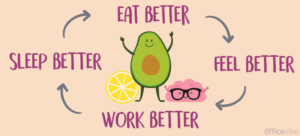
SEHRI/ SUHOOR
Things you SHOULD DO :
The Prophet has said, ‘Take Suhoor as there is a blessing in it.'” Having the Suhoor meal before the Fajr prayer is so important that in old days, a mesaharati (public waker) was appointed during the month of Ramadhan only to wake people up so that they eat before the prayers and the impending fast.
Eating a wholesome meal just before you begin fasting will keep your blood sugar level steady, prevent nausea & headache during fasting hours and will give you the energy to sustain throughout the day.
Things to NOT DO :
Do not skip this meal even if it requires you to wake up 15-20 mins before you otherwise would.
MEAL OPTIONS – Hot homemade breakfast like poha milk/ roti dahi/ upma/ eggs & roti.
IFTAAR
Things you SHOULD DO :
1. Eat slowly, it will help you feel full and prevent you from over eating
2. Eat max 2-3 items at a time
3. Plan your meals ahead
4. Eat fresh meals cooked at home
5. Any one dessert at the start of your main meal
Things to NOT DO :
1. Do not overstuff yourself as it will lead to acidity, lethargy, bloating
2. Do not drink too much at a time and too fast. Instead have sips of water throughout the non-fasting hours
3. Avoid packaged/ processed food products. They will cause dehydration, constipation, insulin resistance and weight gain
MEAL OPTIONS –
Break your fast with– Dates/ Seasonal Fresh fruits / Homemade sherbets
Post Magrib prayer – Haleem/ Biryani raita/ Nonbu kanji/ Rice or Roti & any one type of meat
Post Taraweeh prayer – Milk/ Masala milk/ Milk with gulkand/ Haldi doodh/ Labaan/ Roasted makhana/ Buttermilk
ADDITIONAL POINTERS –
1. Tea/ coffee – Not more than 2 cups/ day. Have it 15-20 mins after your main evening meal
2. Exercise– Best time to workout is 60 mins post your main evening meal. Make sure to hydrate immediately after your session and have a post workout meal (fruit & protein shake) to replenish your fluid and glycogen
3. Sleep– Make sure you get restful sleep so that you wake up fresh for the fast next day. Not only does inadequate sleep interfere with digestion, it will leave you cranky, irritable and also contribute to weight gain. Rubbing ghee or sesame oil on the soles of the feet at bedtime induces sound sleep
4. Fluids – Drink plenty of water between Iftaar and Suhoor to ensure the colour of urine is crystal clear, not cloudy
Stay healthy, stay blessed! Ramadan Mubarak! Ramadan Kareem!!



